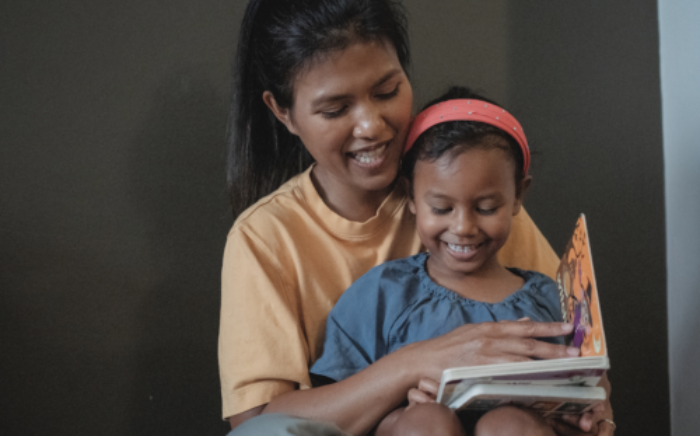Sleep is such a critical part of a young child’s growth and development. Problems with achieving restful and high-quality sleep can impact many areas of a child’s life, including learning, attention, and emotion regulation (Kim et al., 2017). Unfortunately, sleep difficulties can be quite common in children and adolescents. In fact, anywhere between 5-40% of children and adolescents can struggle with sleep-related diseases (Kim et al., 2017). These difficulties can range from general difficulties maintaining a regular sleep schedule to different worries or fears related to sleeping. Here are a few ways that you can help set them up for well-rested days ahead.
For children of all ages, it’s important to establish a regular and consistent nighttime routine. Doing so can help their biological clocks recognize when it’s time to wind down and get ready for bed (Suni, 2022). Read below for some additional tips on setting up a consistent bedtime routine.
- Having a regular bedtime is important in maintaining your child’s natural sleep and wake cycles. Many find it helpful to have a regular time to begin their nighttime routine, in addition to a regular bedtime. By starting to get ready for bed around the same time every night, it can help create a consistent and restful sleep routine.
- It’s often helpful to limit use of screen time prior to bedtime, such as television or other electronic devices. Allowing for at least one hour without electronics prior to bedtime can help support their sleep routine (Shoen, 2022).
- Engaging in relaxing activities prior to bedtime can also be helpful in supporting a healthy bedtime routine. Listening to relaxing music, reading, or engaging in some mindful breathing exercises can help them wind down before bed.
If your young child is struggling with worries or fears related to sleeping, they might often struggle to sleep independently or remain asleep throughout the night. Many children who are afraid of the dark or feel afraid to sleep by themselves may constantly request a loved one or may frequently get out of bed to be near their caregivers. If this sounds like your child, see below for some tips to help support their sleep routine.
- It’s important to validate your child’s fears or anxieties related to sleeping, while also making sure to encourage brave and independent behavior. It can be helpful to have a conversation with your child ahead of time. It might sound like, “We know sleeping by yourself or staying in your bed can sometimes be scary and we also know that you can be brave and do it all by yourself.”
- If your child frequently gets out of bed in the middle of the night, it’s often helpful to quietly and calmly walk them back to their room and help them get back in bed, without engaging in any conversation or negotiating. Again, it’s important to let your child know ahead of time if this is something new that they haven’t experienced before. This might sound like, “We know that staying in your bed all night is something that feels hard and scary. From now on, we are going to help you be brave by walking you back to your bed whenever you come out of your room.”
- Using rewards for sleep-related behaviors can be an extremely helpful tool to increase your child’s motivation in the face of some of their fears or worries. By rewarding your child with stickers or prizes for staying in their bed or sleeping independently, it can help turn sleeping into a fun and positive experience.
References:
https://my.clevelandclinic.org/health/articles/14302-sleep-in-toddlers–preschoolers
https://raisingchildren.net.au/toddlers/sleep/better-sleep-settling/sleep-better-tips








